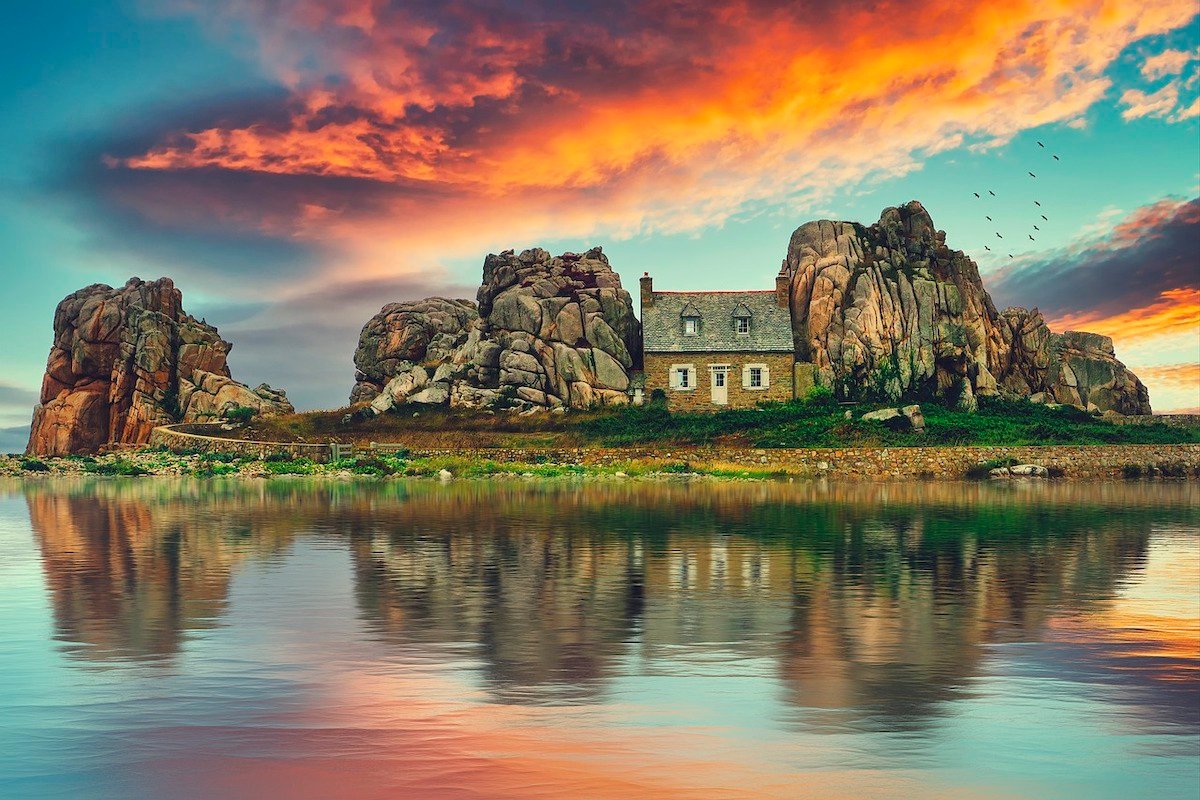
Building a house on a private island is a dream that many people dream of accomplishing.
The thought of having a secluded oasis, surrounded by pristine nature, can be incredibly appealing.
However, this dream comes with its unique set of challenges and considerations.
From selecting the right private island to understanding environmental regulations and designing for sustainability, there’s a lot to know before embarking on such a project.
In this comprehensive guide, we will delve into eight crucial things you should know when building a house on a private island.
1. Selecting the Right Private Island
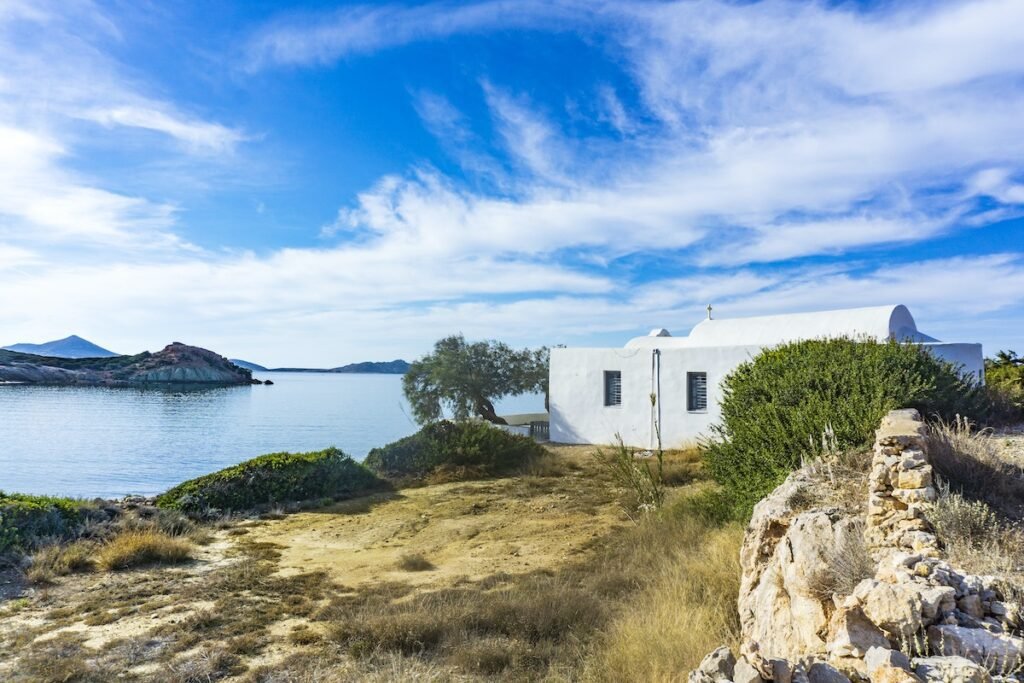
Before breaking ground on your dream house, the first step is selecting the perfect private island.
Here are some critical factors to consider:
Accessibility:
- Proximity to Mainland: Consider how far the island is from the mainland and whether it’s accessible by boat, seaplane, or helicopter. Accessibility impacts transportation costs and convenience.
- Climate and Weather Conditions: Research the climate of the region to ensure it aligns with your preferences. Some islands may experience extreme weather conditions during certain seasons.
Legal Considerations:
- Land Ownership Regulations: Understand the laws and regulations regarding land ownership on private islands in your chosen location. Some countries have restrictions on foreign ownership.
- Environmental Laws: Familiarize yourself with environmental regulations governing land use, conservation efforts, and permits for construction.
Proximity to Amenities:
- Basic Amenities: Check if the island has access to basic amenities like healthcare, groceries, and emergency services.
- Recreational Activities: Consider whether the island offers activities you enjoy, such as fishing, hiking, or water sports.
2. Understanding Environmental Regulations
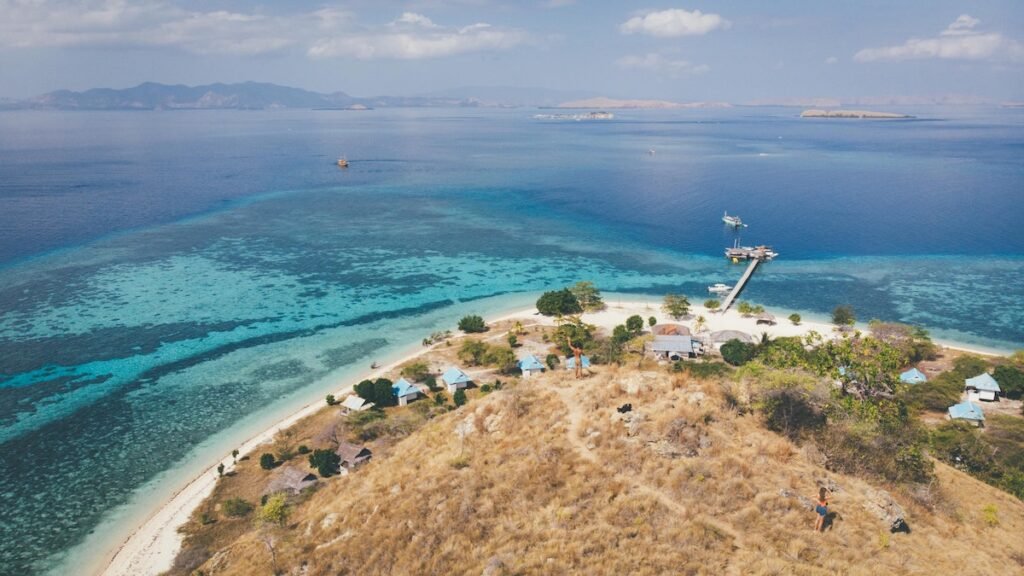
Respecting the environment is not just a moral obligation; it’s often a legal requirement.
Here’s what you need to know:
- Permits and Approvals: Before construction, obtain all necessary permits and approvals from local authorities. Failure to do so can lead to costly delays and legal issues.
- Land Use Restrictions: Understand any land use restrictions, such as protected zones or conservation areas, which may limit where and what you can build.
- Conservation Efforts: Consider participating in local conservation efforts to minimize your ecological footprint and protect the island’s natural beauty.
3. Infrastructure and Utilities
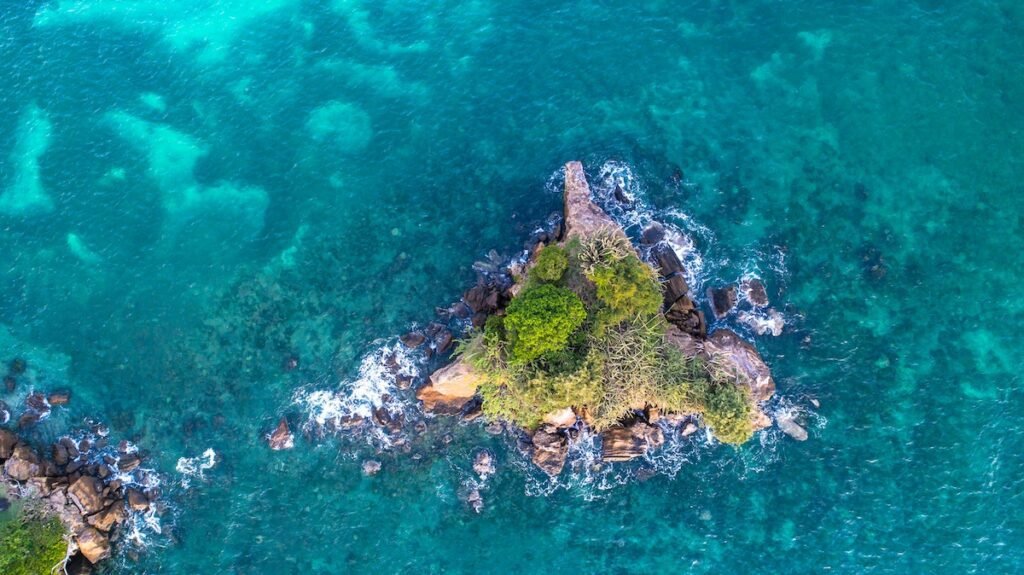
Building on a private island often means creating your own infrastructure from scratch.
This can be both challenging and rewarding:
- Electricity: Explore options for generating electricity, including solar panels, wind turbines, or generators. Evaluate the feasibility and cost-effectiveness of each.
- Water Supply: Plan for a reliable source of freshwater, which may involve drilling wells or implementing rainwater harvesting systems.
- Sewage Systems: Decide on an eco-friendly sewage system that complies with environmental regulations.
- Internet Connectivity: Investigate satellite internet options to ensure connectivity for work, communication, and entertainment.
4. Transportation and Accessibility
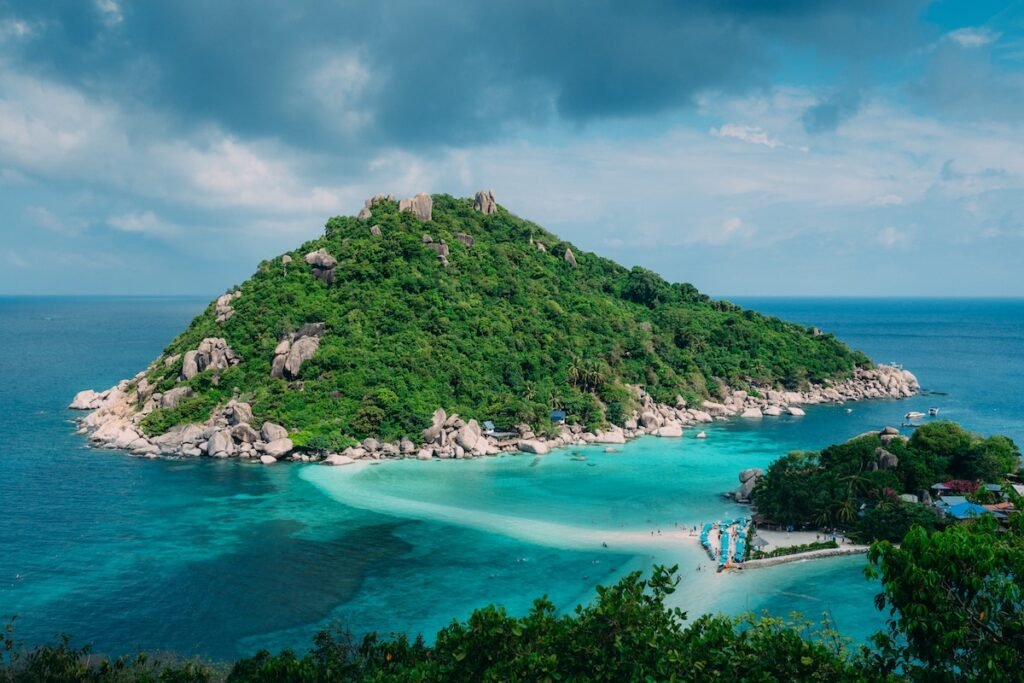
Getting to and from your private island is essential. Consider the following:
- Transportation Modes: Choose the most suitable transportation method, such as a private boat, seaplane, or helicopter, based on your island’s location and your preferences.
- Logistics: Develop a logistical plan for transporting construction materials, equipment, and personnel to the island. This includes considering storage facilities and transportation schedules.
5. Designing for Sustainability
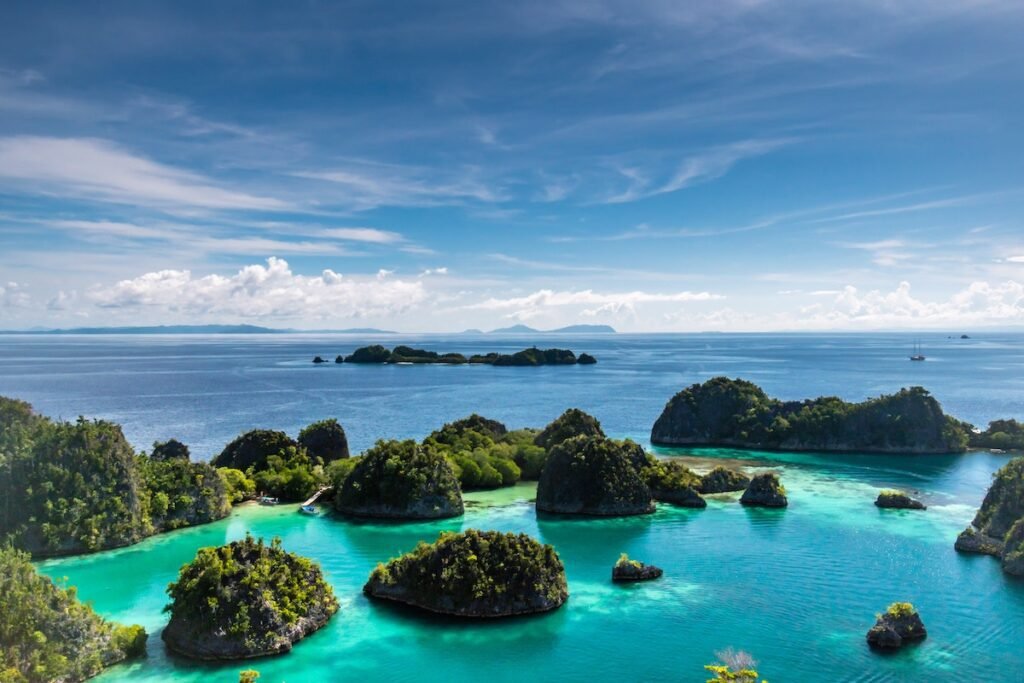
Sustainable building practices are not just trendy; they are essential for the long-term health of your private island:
- Solar Power: Harness the power of the sun with solar panels to reduce your reliance on fossil fuels.
- Rainwater Harvesting: Collect rainwater for non-potable uses, reducing the strain on freshwater resources.
- Waste Management: Implement efficient waste disposal and recycling systems to minimize your environmental impact.
6. Security and Safety Measures
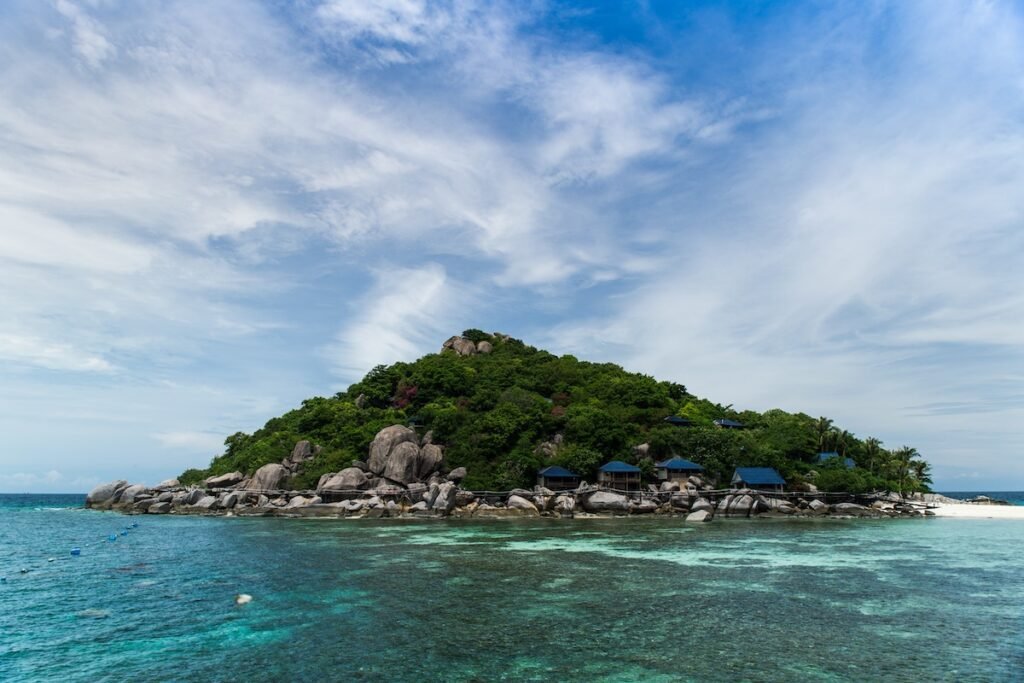
Ensuring the safety and security of your island retreat is paramount:
- Theft and Vandalism: Develop security measures, such as surveillance systems and private security personnel, to protect your property from theft and vandalism.
- Natural Disasters: Research the island’s susceptibility to natural disasters like hurricanes or tsunamis. Construct your house with these risks in mind and have a well-thought-out emergency plan.
7. Costs and Budgeting
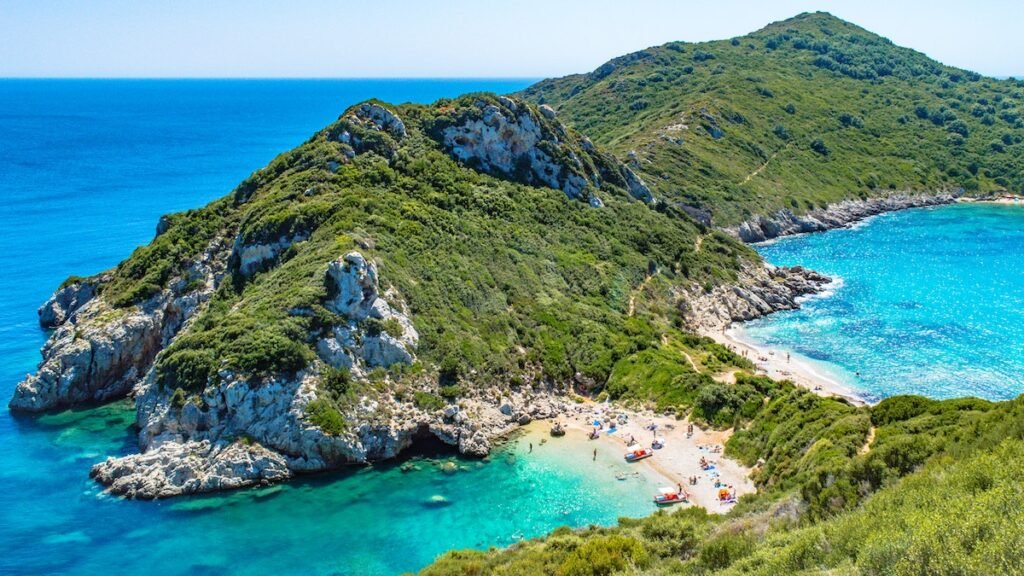
Building a house on a private island can be expensive. Here’s a breakdown of potential costs:
- Land Acquisition: The initial cost of purchasing the island itself.
- Construction Costs: Expenses related to building your dream home, including labor, materials, and permits.
- Ongoing Maintenance: Budget for the regular upkeep of your property and infrastructure.
- Contingency Planning: Set aside a contingency budget for unexpected expenses or emergencies.
8. Local Community and Culture
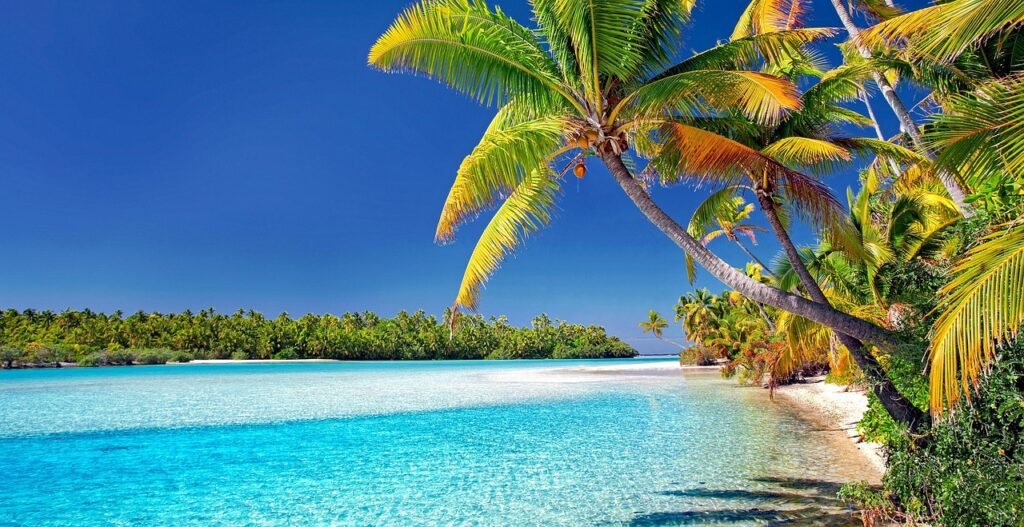
Respecting and engaging with the local community is essential for a harmonious island experience:
- Hiring Local Labor: Consider employing local residents, which can strengthen community bonds and provide employment opportunities.
- Supporting Local Businesses: Patronize local businesses for goods and services to contribute to the local economy.
- Participating in Community Activities: Get involved in local events and initiatives to become a valued member of the community.
Conclusion
Building a house on a private island is a rewarding achievement that offers unparalleled privacy and serenity.
However, it comes with unique challenges that demand careful consideration and planning.
By selecting the right island, understanding environmental regulations, establishing necessary infrastructure, and respecting the local community, you can turn your island dream into a reality.
With proper research and preparation, your private island can be a haven of luxury and sustainability that you, your family, and future generations can appreciate.





